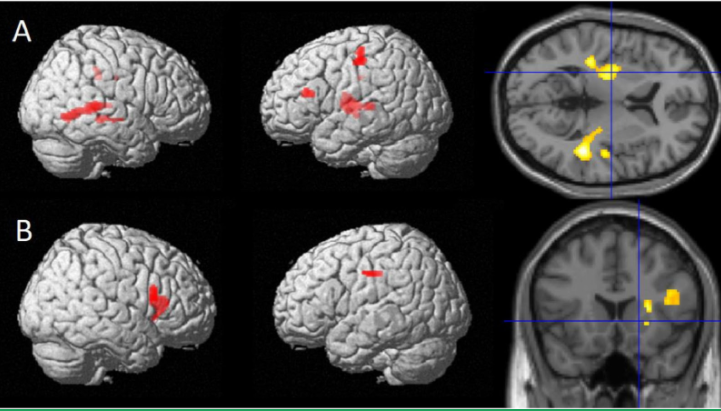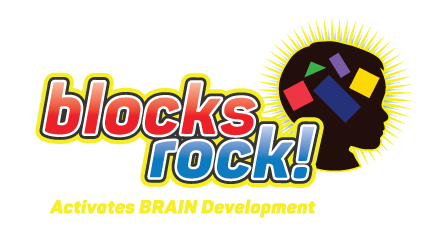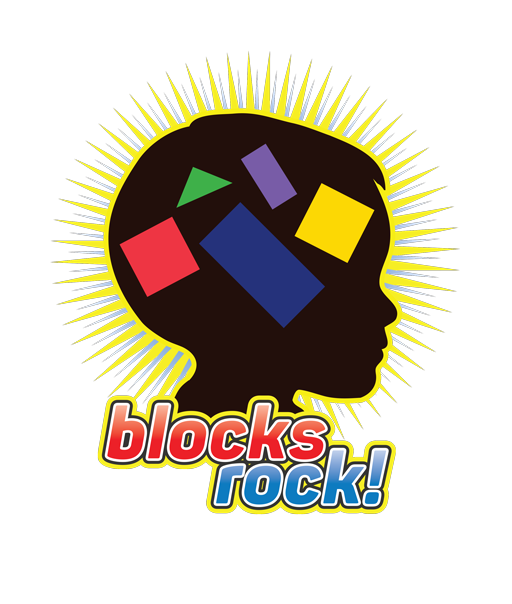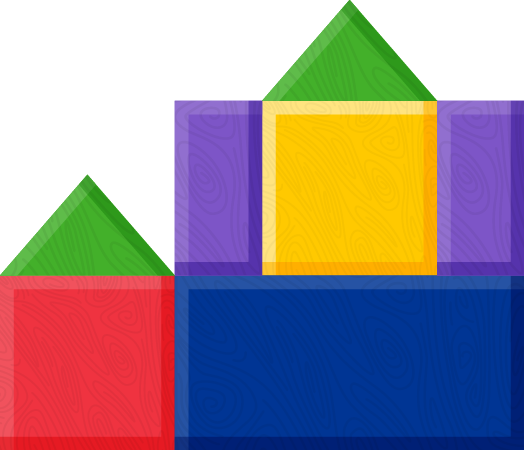Research
New Study Shows Structured Block Play Improves Addition and Subtraction
In a new study using Blocks Rock!, structured block play was found to improve addition and subtraction performance and more.
In a study by researchers at the Department of Psychological and Brain Sciences at Indiana University and the College of Education at the University of Alabama, structured block play using Blocks Rock! was found to improve addition and subtraction performance while also increasing activation in brain regions linked to memory, motor, and arithmetic processing after block training.
Summary of the Study
This study monitored two types of block play: structured and free. Both groups used Blocks Rock! blocks, but one group competitively played the game as intended by creating block designs, and the other group was able to build freely from imagination. The study mainly observed arithmetic processing, using behavioral and fMRI methods.
The following image shows the fMRI results in the structured block play group looking for improvements in brain activation during addition and subtraction processing.

“(A) Depicts activation increases after structured block play for addition. (B) Depicts activation increases after structured block play for subtraction.”
The structured block play group (fMRI results are shown above) showed increased activation after training in multiple regions.
“The pattern of change was different for addition and subtraction. In addition, increased activation was observed in the right temporoparietal cortex, left putamen, left inferior frontal cortex, and left parietal cortex. Training related activation differences for subtraction were found in the right putamen, right inferior frontal gyrus, and left precentral cortex.”
The free block play group did not show significant training-related activation differences for addition but did show differences for subtraction.
Conclusion: Both structured and free block play groups showed behavioral improvements and measurable improvement in subtraction. However, only the structured block play group showed significant improvement in both addition and subtraction.
This suggests that structured block play and free block play “train different aspects of visuospatial processing, with Blocks Rock! having an impact on spatial working memory.” The structured block play group also showed increased activation in brain regions linked to memory, motor, and arithmetic processing after training.
Results from this study suggest that structured block play is more likely to improve arithmetic processing.
What it Means for Kids/Parents
Both free and structured block play can be beneficial for children. However, structured block play, like Blocks Rock!, can have a greater impact on processes that overlap with mathematics, meaning it is more useful in preparation for STEM education.
Block play is known to improve visuospatial skills. There are multiple forms of block play; before this study, it was unclear whether they had differential cognitive effects.
The results from this study inform choices for activities used in the classroom and at home to improve visuospatial skills and “suggest structured block play may be beneficial for arithmetic processing.”
Interested in Learning More?
Read the full study: Structured versus free block play: the impact on arithmetic processing.
You can also read a previous study on Blocks Rock!: Study shows benefits of block building activities on young minds
Bring structured block play to your home or classroom!
Ready to begin improving your children’s arithmetic processing and visuospatial skills?


